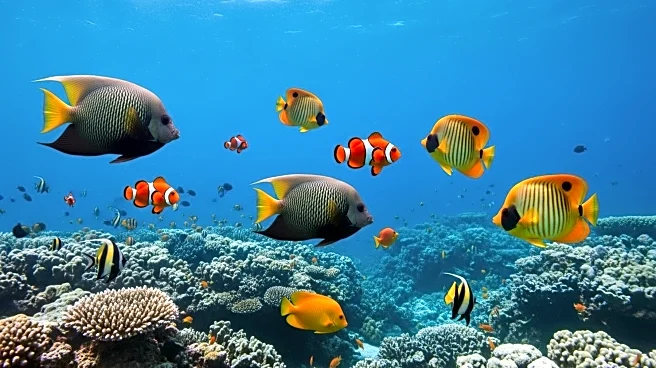What's Happening?
South Australia has announced a ban on the sale and distribution of fish-shaped soy sauce containers as part of its broader initiative to reduce single-use plastics. The ban, effective from September 1, targets pre-filled 30ml containers with lids, caps, or stoppers. These containers, despite being made from recyclable polyethylene, often fail to be processed properly due to their small size, leading to environmental pollution. The iconic containers, invented in Japan in 1954, have been popular in Asian restaurants worldwide. The move builds on previous legislation from 2023 that banned various single-use plastic items, aiming to reduce pollution, cut carbon emissions, and protect marine life.
Why It's Important?
The ban on fish-shaped soy sauce containers is a significant step in South Australia's efforts to combat plastic pollution. Single-use plastics contribute heavily to environmental degradation, particularly in marine ecosystems. By eliminating these containers, the government aims to reduce the annual flow of plastic into oceans, which could triple by 2040 without intervention. This policy not only addresses environmental concerns but also sets a precedent for other regions to follow suit in tackling plastic waste. The initiative reflects a growing global awareness and responsibility towards sustainable practices and environmental protection.
What's Next?
Following the ban, South Australia may continue to implement further restrictions on single-use plastics, potentially influencing other states and countries to adopt similar measures. Businesses and consumers will need to adapt to alternative packaging solutions, such as larger soy sauce bottles and sachets, which are not affected by the ban. The government may also monitor the impact of this policy on pollution levels and marine life, adjusting strategies as necessary to achieve its environmental goals.












